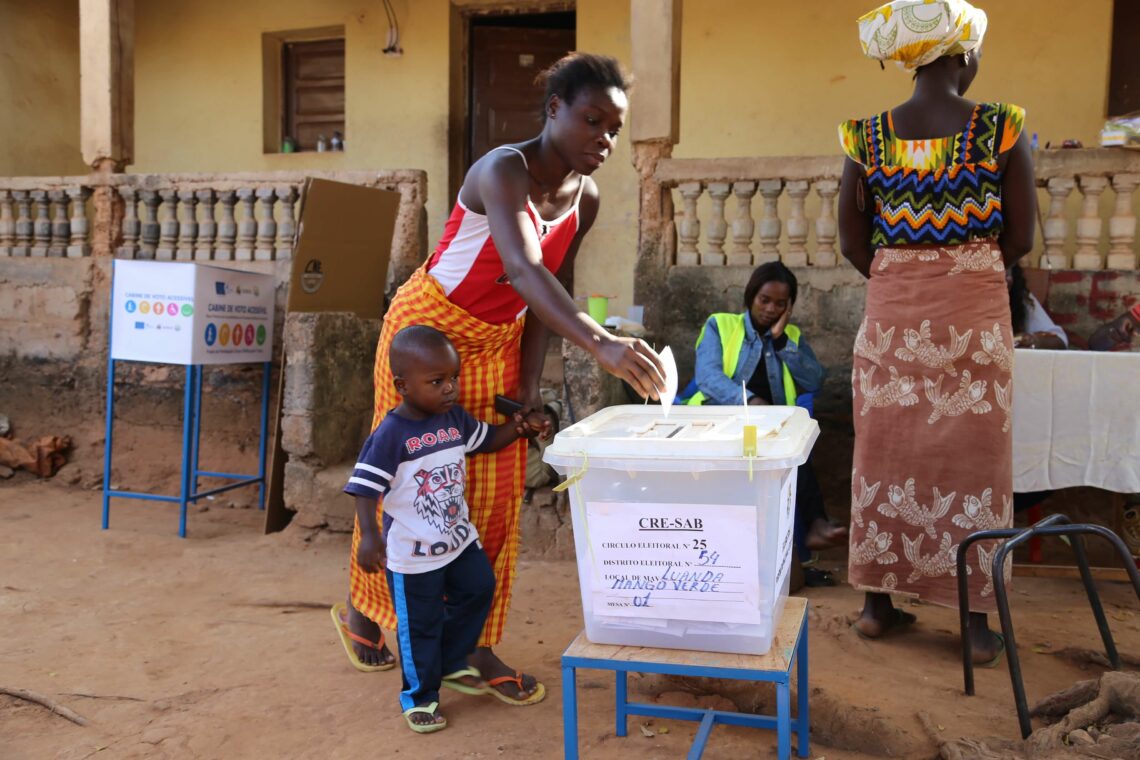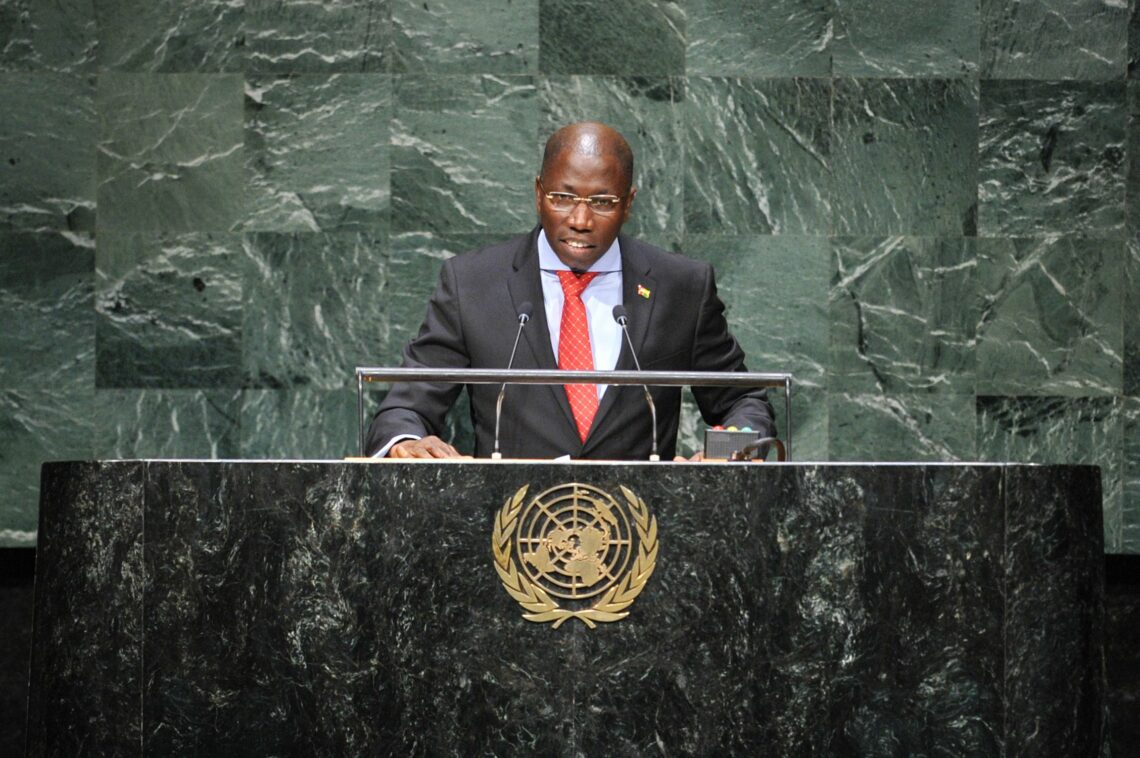Guinea-Bissau: Little hope for a peaceful transition
After decades of institutional fragility, Guinea-Bissau appears to be facing another political thunderstorm. Presidential candidate Embalo has seized the reins of the country, but neither the supreme court nor the National Assembly recognize his victory.

In a nutshell
- The pandemic has led to a shift in regional policy toward Guinea-Bissau
- Weak legitimacy will compromise the government's ability to manage the crisis
- Political turmoil can be expected in the short and medium term
Since achieving independence from Portugal in 1974, Guinea-Bissau has mostly seen instability. With multiple coup attempts – four of them successful – the small state seems to be defying the overall trend of political institutionalization on the continent. In the 2000s, the country’s low profile on the international scene, along with its weak government and strategic location, made it a transit hub for Latin American cocaine.
With only 1.9 million inhabitants, Guinea-Bissau’s economic and developmental performance has not improved in recent years. Roughly 85 percent of the population lives below the poverty line, and the state remains largely inefficient. The private sector is almost nonexistent and civil servants account for most of the salaried workers. Health and education services are in shambles. Cashew nuts account for over 80 percent of the country’s exports. In 2019, Guinea-Bissau ranked 168 out of 180 states in Transparency International’s Corruption Index.
In 2012, following a successful coup, the country entered a period of relative stability. The putsch was led by General Antonio Indjai, who was later arrested by the United States Drug Enforcement Agency (DEA). He was charged with having conspired to import cocaine, acquire antiaircraft missiles and provide support to the Revolutionary Armed Forces of Colombia (FARC). The event paved the way for the election of Jose Mario Vaz, who in 2019 became Guinea-Bissau’s first president to relinquish power peacefully – albeit reluctantly.
Health services are in shambles.
While Mr. Vaz stabilized the country’s security framework, clashes within the political apparatus triggered several political crises. In 2015, the president dissolved a government led by former Executive Secretary of the Community of Portuguese Language Countries (CPLP) Domingos Simoes Pereira and established a new executive.
Contentious elections
Guinea-Bissau, unlike most countries in the region, has a dual executive rather than a presidential system – a source of constant friction between the president and the country’s main political party, the African Party for the Independence of Guinea and Cape Verde (PAIGC). The latest crisis began in the aftermath of the presidential elections in November and December of 2019. PAIGC leader and former Prime Minister Domingos Simoes Pereira ran against Umbaro Sissoco Embalo, the candidate of the Movement for Democratic Alternation (Madem G-15), a party formed by PAIGC dissenters.
The PAIGC candidate won the first round with 40.13 percent of the vote. However, the Madem G-15 candidate – who received 27.65 percent of the vote in the first round – was endorsed by a coalition of defeated candidates. Shortly after the second round, the National Electoral Commission (NEC) announced that Mr. Sissoco Embalo had won the second round with 53.55 percent of the vote. The NEC’s declaration marked the beginning of yet another crisis that would take on a regional dimension and bring the military back onto the political scene.

Mr. Simoes Pereira challenged the results before the country’s Supreme Court of Justice, citing several irregularities. On February 27, even though the supreme court and the National Assembly had not recognized the results announced by the NEC, Mr. Sissoco Embalo took office in a symbolic ceremony, which was described by Prime Minister Aristides Gomes as a “coup d’etat” and “an act of war.” The National Assembly, in turn, remained divided over whether to recognize the Madem G-15 candidate as the legitimate president. The regional community was also at odds, with only Senegal and The Gambia attending the inauguration.
After this divisive step, the military occupied the National Assembly, the supreme court and the national radio station. National Assembly President Cipriano Cassama, the interim president according to the constitution, was forced to resign. Prime Minister Aristides Gomes, a member of PAIGC, was put under house arrest. The developments prompted the Economic Community of West African States (ECOWAS) to express concerns, which the chief of staff of Guinea-Bissau’s armed forces answered by stating that the country’s army was not involved in the interventions carried out by members of the presidential guard.
Main players
The electoral crisis is multilayered, as it opposes not only two candidates but also two key institutions – the NEC and the Supreme Court of Justice. Regional actors could intervene but Guinea-Bissau’s international political alliances are fragile. The military, whose position remains ambiguous for the time being, could also play a crucial role in the country’s predicament.
In a race against time, Mr. Sissoco Embalo left the country and started an international tour of West Africa and Europe. He also visited the Ethiopian capital, Addis Ababa – the headquarters of the African Union (AU). Senegalese President Macky Sall and the Portuguese government have recognized his victory but others, like France and the AU, have been more cautious, stating they would wait for a decisive outcome.
ECOWAS has a zero-tolerance policy for irregular seizures of power.
President Sall is a longtime political ally of Mr. Sissoco Embalo, and sees him as the candidate most likely to preserve Senegal’s economic and security interests in the subregion. Dakar is interested in solving tensions over the exploitation of fisheries, petroleum and gas resources in the joint development zone with Guinea-Bissau. However, Mr. Simoes Pereira’s supporters perceive this endorsement as Senegalese interference in the affairs of Guinea-Bissau. Nigeria, meanwhile, believes Senegal is a reliable broker in the ongoing crisis.
Alpha Conde, president of the neighboring Republic of Guinea, has implicitly lent his support to former Prime Minister Simoes Pereira. It is also noteworthy that Angolan President Joao Lourenco has held a meeting with the PAIGC candidate. Before the 2012 coup, Angola played an important role in Bissau through technical and military cooperation. Meanwhile, Ghana and Ivory Coast are biding their time before endorsing either candidate.
In April, ECOWAS recognized Mr. Sissoco Embalo’s victory. The decision was probably influenced by the rapid rise in COVID-19 cases in Guinea-Bissau, including among members of the government. The country’s health system is one of the most fragile in Africa. Meanwhile, lockdown measures were creating friction between security forces and the population. Most people rely on the informal economy to earn a living. However, ECOWAS has a zero-tolerance policy for irregular seizures of power. The organization has called for the formation of a government in accordance with the results of legislative elections and demanded that a constitutional reform be put to a vote within six months.
Scenarios
In the short to medium term, the country will be plunged into uncertainty, affecting internal and regional security, as evidenced by a recent spike in drug-related crimes. In addition, whereas debt relief granted by the International Monetary Fund’s revamped Catastrophe Containment and Relief Trust (CCRT) is good news, Guinea-Bissau’s fragile economy will be hard hit. Three scenarios must be considered.
Under the first and most likely scenario, despite the ECOWAS recognition, the effects of coronavirus along with delayed salaries, closed schools and a collapsing health system will weaken the country’s economy and security, which will increase opposition to Mr. Sissoco Embalo’s rule. However, the president will try to indefinitely delay the political reforms demanded by ECOWAS, citing the extraordinary circumstances provoked by the pandemic. Whereas this strategy is expected to work in the short term, it will only delay yet another political and security crisis.
Under a second, slightly less likely scenario, the sense of urgency provoked by the sanitary and economic crisis will force the main internal actors – Mr. Sissoco Embalo and the PAIGC – to negotiate a way out of the political impasse and establish a transitional government. Whereas this would increase internal stability and international credibility in the short term, it would not be sustainable in the long run. During the country’s recent experiments in joint rule, power was divided rather than shared and conflicts were stalled rather than solved.
er an even less likely, although still possible, scenario, the illegitimacy and inefficiency of the Sissoco Embalo administration could trigger a counter-coup born out of divisions in the military.







